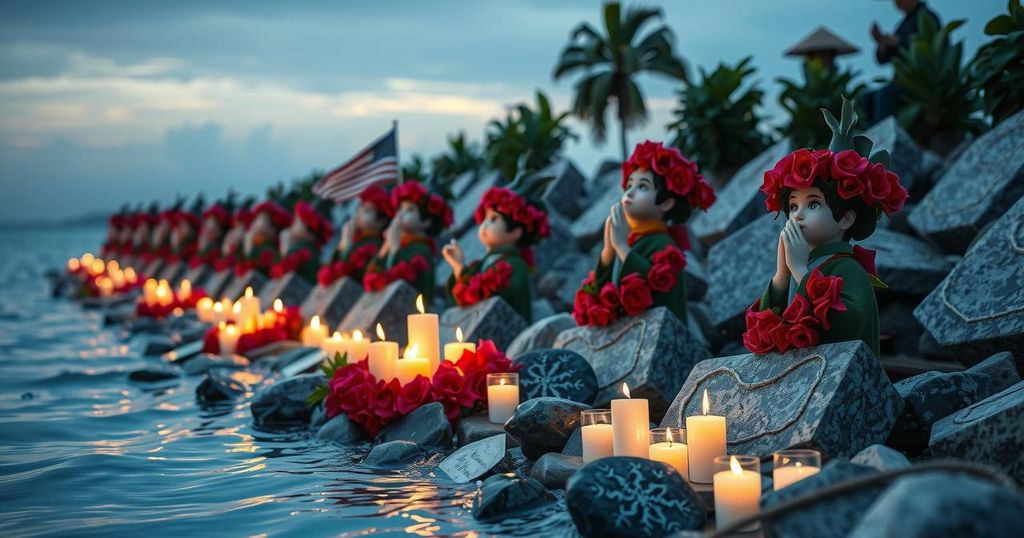20 Years After the Indian Ocean Tsunami: Remembering Lives Lost and Building Resilience
On the 20th anniversary of the Indian Ocean tsunami, communities in Indonesia, Thailand, Sri Lanka, and India gather to mourn the over 230,000 lives lost. Memorials highlight the tragedy’s lasting impact while emphasizing improved disaster preparedness and resilience. These gatherings serve as a reminder of the fragility of life and the importance of solidarity in overcoming adversity.
As communities across Asia and beyond gather to commemorate the devastating Indian Ocean tsunami that struck two decades ago, the memories of loss and resilience are palpably felt in Indonesia, Thailand, Sri Lanka, and India. This unprecedented natural disaster, which occurred on December 26, 2004, claimed over 230,000 lives and left millions more displaced, altering the lives of countless families. Survivors and families of the victims reflect on the enduring impact of that tragic day, as they participate in memorial services to honor their loved ones and ensure that their memories remain alive.
In Indonesia, where the tsunami’s aftermath was particularly devastating, locals held poignant ceremonies, lighting candles and sharing stories about those they lost. Similarly, in Thailand’s coastal areas affected by the wave, survivors and families gathered to pay their respects, offering prayers and committing to preserving the memories of victims. In Sri Lanka and India, memorials were also held with an emphasis on understanding the lessons learned from this tragedy, fostering a spirit of preparedness and community solidarity.
The Indian Ocean tsunami was an unprecedented event that highlighted the need for better preparedness and response strategies to natural disasters. Nations around the world, particularly those in coastal regions, have since improved their early warning systems and disaster management protocols. The spirit of solidarity and remembrance displayed during these memorials serves not only as a tribute to those lost but also as a crucial reminder of the importance of community and resilience in the face of adversity.
The Indian Ocean tsunami, triggered by a massive undersea earthquake, ranks as one of the deadliest tsunamis in recorded history. It impacted multiple countries along the Indian Ocean rim, particularly Indonesia, Thailand, Sri Lanka, and India. The catastrophic events prompted international response efforts and paved the way for advancements in disaster response frameworks and early warning systems, aiming to mitigate the risks posed by future natural disasters. The tsunami’s legacy continues to shape policies and enhance preparedness in vulnerable regions.
The commemoration of the Indian Ocean tsunami serves as a crucial reminder of the fragility of life and the importance of community resilience. By remembering the past, individuals and nations can work towards a safer future, enhancing preparedness and response to natural calamities. The ongoing efforts to honor the memories of those lost underscore the collective resolve to build stronger communities and improve systems to protect vulnerable populations in disaster-prone areas.
Original Source: m.economictimes.com




Post Comment